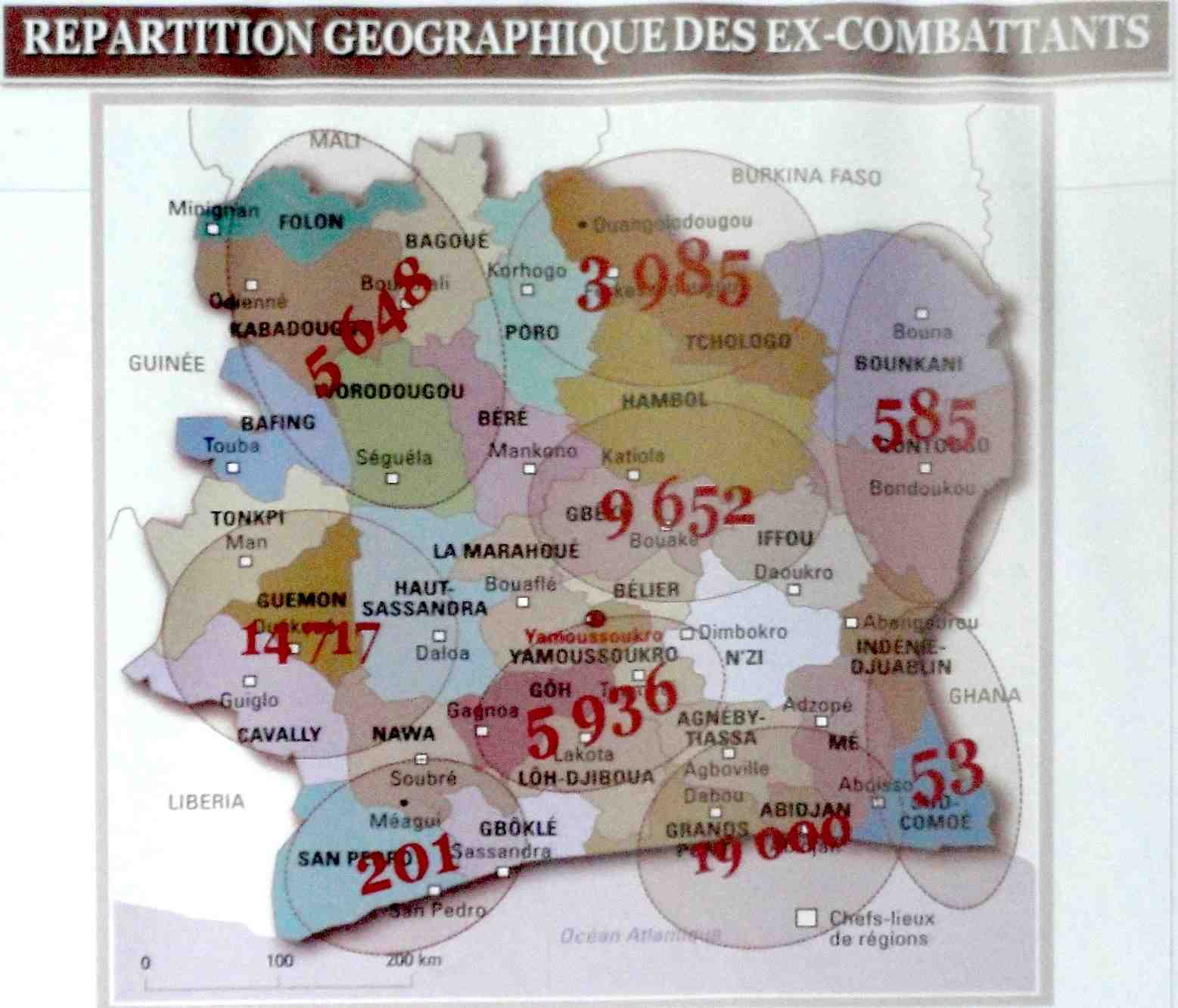Ivorian DDR struggling
(BRUSSELS2 to Abidjan) The UN Security Council must soon decide whether or not to lift the arms embargo imposed on Côte d'Ivoire. It is necessary " assess whether the reasons that justified the embargo have disappeared ».
A possible lifting of the arms embargo
According to the testimony of a diplomat from the organization present on the spot, who spoke in a “personal capacity”, “ the lifting of the embargo is possible even if it can be estimated that all the reasons which justified it have not disappeared ". The DDR (disarmament, demobilization, reintegration) of the various forces “ is not finished yet ". And the danger is still there from a possible external attack”. But there is also a problem that weighs heavily, as soldiers training the Ivorian forces told B2, " they do not have one weapon per soldier ". This poses singular problems both in terms of training and credibility, even the balance of forces. Because on the other side, many weapons have not been returned.
A certain failure of the operation of the DDR
According to UN figures, only 1700 functional weapons and nearly 1200 non-functional weapons have been returned as part of the disarmament operation controlled by UNOCI - the (plethoric) UN force deployed in Côte d'Ivoire. 'Ivory. As for heavy weapons ammunition, the results are very limited: 59 rockets and 20 shells. There therefore remains a significant number of weapons in circulation or stored “just in case”.
Only 5% of staff demobilized or in the process of being demobilized
Nearly 4400 men and women have been demobilized, or at least are in the process of being demobilized and have entered the process. They will be integrated either into the prison guards, or into the customs and border surveillance services. To be compared with the estimate of 64.000 people from the “supplementary” forces to be demobilized (a figure recently revised, we spoke of 110.000 previously). We understand that the magnitude of the task. Demobilization is based on voluntary service. It is too early according to an official to move to a restrictive program.
Those who remain are not paid by the army. But often they continue to carry, in addition to their weapon, a uniform. " They are, moreover, fed, lodged in the barracks says a French officer. To live, some… ransomed. The reintegration program is in place. But its effects are still limited. Everyone is counting on the economic recovery, which is beginning to show, at least in Abidjan, to offer an outlet for former soldiers and rebels. " Economic opportunities are greater says a program manager.



